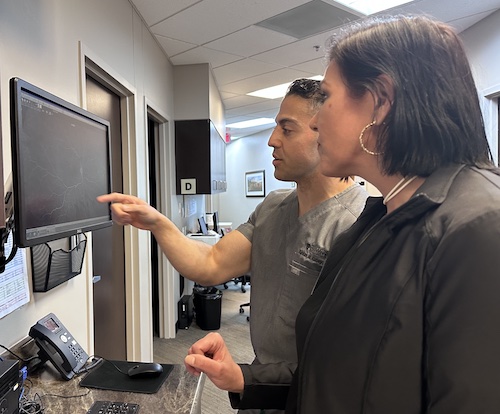On June 9, 2025, Eluminex Biosciences Limited, a clinical-stage protein therapeutics company, announced positive topline safety, tolerability, and pharmacodynamic data from the multicenter LOTUS Part 1 clinical trial of EB-105 in patients with vision-threatening diabetic macular edema (DME). Texas Retina was one of five sites for the study and enrolled the most patients with Ashkan Abbey, MD, Texas Retina’s Director of Clinical Research for Dallas, serving as a Principal Investigator and dosing the study’s first patient in July 2024.
EB-105 is the world’s first pentavalent trispecific antibody targeting VEGF-A, VEGF-B, placental growth factor (PlGF), angiopoetin-2 (Ang-2), and interleukin-6 receptor (IL-6R) in DME. An open-label, multicenter, first-in-human ascending dose study, LOTUS Part 1 evaluated a single intravitreal (IVT) injection of EB-105 at low (1.6 mg/eye, N=4), mid (4.0 mg/eye, N=5), and high (8.0 mg/eye, N=4) doses in DME patients (N=13). Study participants received EB-105 on Day 1 and were followed for 3 months. Key findings included the following:
- There were no reported drug-related adverse events, dose-limiting toxicities, or serious adverse events, including ocular inflammation.
- The study demonstrated clinically relevant pharmacodynamic activities in all dose groups with sustained overall mean improvement in best-corrected visual acuity (BCVA) and reduction in central retinal subfield thickness (CST).
“It is exciting to see these positive results after just a single injection,” shares Dr. Abbey. “When we treat patients with DME, our goal is to reduce the intraretinal fluids that are negatively impacting their eye health and vision. Part 2 of the LOTUS study will assess multiple intravitreal injections of EB-105 in patients with DME, and the hope is that doing so will provide even further clinical benefit in terms of reducing edema and improving visual acuity and durability. At Texas Retina, we plan to participate in that part of the study when it becomes available.”
To learn more about all the clinical trials currently available at Texas Retina, click here.


